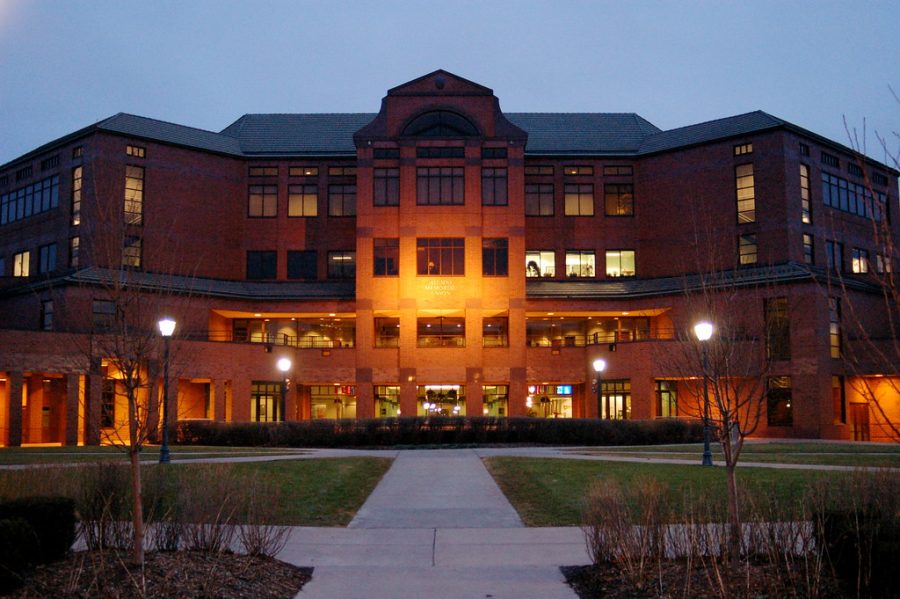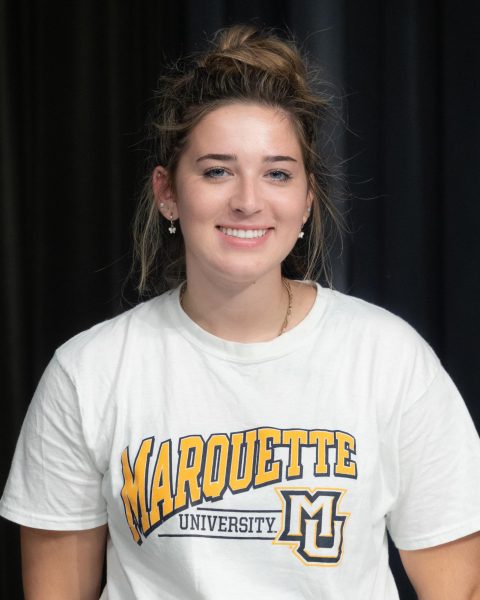Fork Farms, a hydroponics manufacturer, is partnering with Marquette to bring fresh and healthy food to campus on an accessible and sustainable level. Based in Ashwaubenon, Wisconsin, this technology, the hydroponics— the ability to grow food using nutrient-based water solution— allows communities to be more integrated in farming and producing food.
At Marquette, one machine will be housed in the STEM buildings while the other will be in the Alumni Memorial Union to be used by the backpack program. The food grown will be given to the backpack program and can help students gain access to their basic food needs.
Hostad said plants are infused with nutrient infused water, which pumps into the root chambers and sprinkles back down. He said since the water is nutrient infused, the plants have the opportunity to grow, even without soil.
First introduced at University President Michael Lovell’s 2024 Presidential Address, the agricultural-based company builds advanced technological equipment that uses 98% less water and land than traditional agriculture.
Marquette is hosting the first Fork Farms machine on a college campus.
“This is the very first partnership we’ve had direct with a university like this, that hits on the social innovation and hunger relief side, looking at how we might be able to hire students into our company to help us grow our impact,” Michael Hostad, executive vice president of social innovation for Fork Farms said.
Hostad said that a lot of these units are being put into the classroom, with their primary market being K-12 education, for students to learn to grow and produce food. He said a lot of these units are also going into food service operations in school districts, who then grow food for the entire district.
“We’ve been looking at higher-ed for the same purposes, but also to add in a potential research component. We want to see what we can do to extend the impact and use of these machines and faculty and researchers and higher ed are in a position to help us think that through,” Hostad said. “So that’s why we reached out to Marquette, to see what we might be able to do together.”
Hostad said Fork Farms hopes to work with students to see how they can help get the food in campus farmers markets or in the surrounding neighborhoods to help those who might be facing food or nutrition insecurity around campus.
The Fork Farms machines can grow a range of food. The variety ranges from leafy grains to culinary herbs to strawberries.
The only things the machines can’t grow are root vegetables such as potatoes that need to grow underground and with soil.
From germination to harvest, most leafy greens have a turn-around time of around 28 days, Hostad said. He said each machine produces about 25-27 pounds of leafy greens for every 28 days.
“If you’re looking at doing peppers or cucumbers or cherry tomatoes, those are going to take you a little while longer, but leafy greens are fast growing and even faster in our machine than in the ground,” Hostad said.
“We’ve had people experiment with things like gourds, pumpkins and stuff like that, and they grow as well,” Hostad said.
Hostad said the maintenance is very minimal, around 15 minutes a week. He said there is a timer of light that mimics nature, such as the summertime sun setting and rising. Hostad also said you can run it overnight to ensure it gets enough light if you don’t want to run it during the day.
Hostad said Fork Farms staff will be on campus to help with maintaining the food alongside training students, and ideally, he hopes students can eventually learn to manage and maintain them.
This story was written by Trinity Zapotocky. She can be reached at [email protected].








